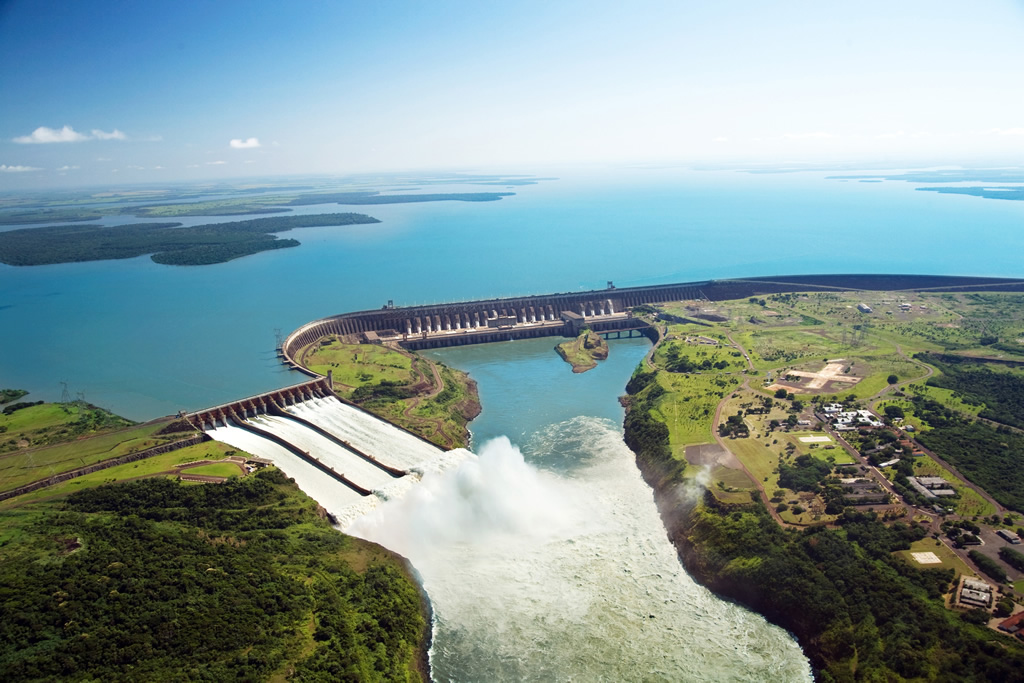RIO DE JANEIRO, BRAZIL – Engineer Fabián Cáceres, former technical manager of Paraguay’s National Electricity Administration (ANDE), considered that the 2022 tariff of Itaipu Binacional (IB) is defined with the provisional reduction applied by Brazil. He added that the decrease established by Brazil would not change because, otherwise, it would have to pay US$500 million to cover the difference for the energy that corresponds to it.
“We are in May; Itaipu’s energy in the Brazilian market is already being sold with the provisional tariff they stipulated; they will not go back. Let’s imagine they go back; where will they get the resources to cover the difference? That difference in one year represents more than US$500 million; that is a lot of money,” said Cáceres.
He reflected that the Brazilian position is very convenient because it is based on the technical interpretation of Annex C, which means that the tariff must be lowered, and Paraguay was unable to advance in its intention due to its own mistakes. Paraguay intends to maintain the tariff at its current level to invest more resources in the national electricity system.

BACKGROUND
“We started badly with the Bilateral Act (of 2019). This Government started badly with that; it did not give the importance it had to give to the relationship with Itaipu, to such an extent that it accepted to bring an attempt of an imposition on Paraguay so that our country would contract more than it needed, so that at that time there would be more surplus energy left and Brazil would also on that side get a lower tariff,” recalled the energy expert.
He added that since Brazil did not achieve its objective at the technical level, the situation was taken to the highest levels, where the chancelleries – which were not prepared to deal with the issue – appeared, and Brazil practically managed to benefit on all points. “Fortunately, that act was reversed, but I believe that the Government began to demonstrate its lack of capacity to negotiate and advance in a road map,” stated the engineer.
On the other hand, Cáceres pointed out that Paraguay was also weakened before the public opinion because a tariff was promised, but there has been no progress so far. “We are very weakened before public opinion, before Brazil, which realized that we do not have the strength to negotiate,” he said.
LATE REVIEW FOR ANNEX C
Regarding Annex C, Fabián Cáceres mentioned that the ideal would have been to review it before the tariff decreases because, with the tariff, some royalties are stipulated, and if those concepts are increased, the tariff has to be raised again, and “that is very difficult”.
He insisted that the current government announced that Itaipu would be a national cause of priority as soon as it took office. Still, less than a year after starting, the high parties negotiated and negotiated poorly, leaving Brazil in a very uncomfortable situation because it had to go back on the 2019 Bilateral Act. “Brazil was bothered by this. Paraguay never proposed, never showed a roadmap, and never initiated a serious conversation. It decided that the tariff would be maintained at the last minute,” he criticized.
He warned that the sum of Paraguayan mistakes has consequences that will have to be assumed because the tariff will go down and behind this measure come many damages, especially for ANDE: “For lack of agreement, for example, a commitment of US$100 million of social expenses for infrastructure was not finalized, US$40 million that are part of the US$203 million in five years are not foreseen. In total, US$140 million are not there,” he detailed, adding that another big discussion will take place in September when the tariff for 2023 will have to be defined.
With information from Última Hora

